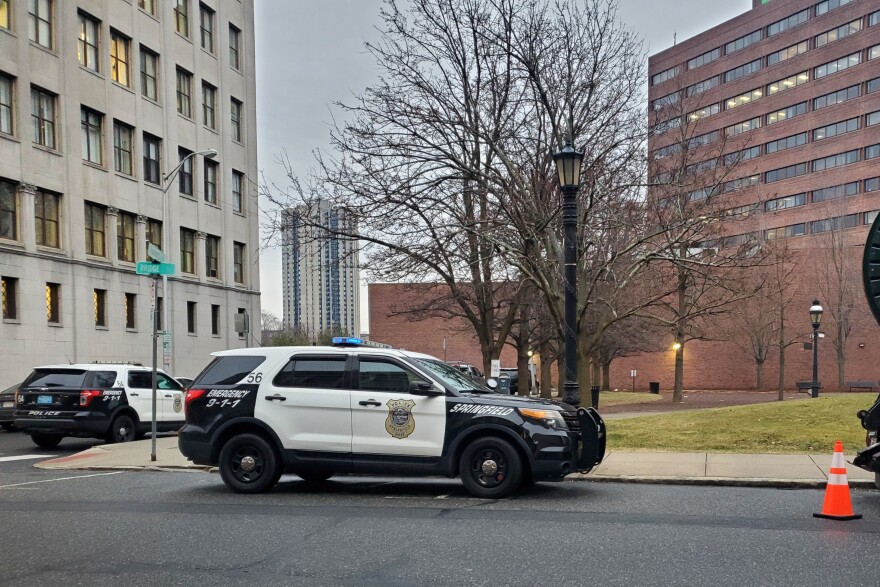The Massachusetts state commission charged with overseeing police misconduct heard testimony Wednesday in the case of a Springfield police officer, Stanley Clerge, who was arrested for a domestic altercation last year.
The Peace Officers Standards and Training (POST) commission was created in 2020 as part of far-reaching criminal reform legislation.
At the hearing this week, lawyer Timothy Hartnett of the POST commission asked Judge Judith Corwin to decertify Clerge as a police officer. Clerge's current certification lasts until July 2025.
Clerge was initially charged with domestic violence against his former partner, but criminal charges in the January 2023 incident were dropped when the alleged victim declined to testify.
Clerge's former partner was not at the POST commission hearing. Clerge testified that he did not assault her and that he was trying to get out of the house while she became upset over his relationship with another woman.
According to court evidence, Springfield's Board of Police Commissioners suspended Clerge for seven days for "discourtesy" but not for domestic violence. They also reprimanded Clerge for failing to report the incident to his supervisors when it occurred.
In the POST hearing, his attorney Kevin Coyle asked Clerge if he could explain the apparent injuries on the alleged victim.
"The only one I could come up with was when she was on me, trying to jump on me and losing her balance, throwing her body everywhere," Clerge said.
The parties have until Jan. 13 to submit closing arguments to Judge Judith Cowin, who will then decide whether Clerge can remain a police officer.




